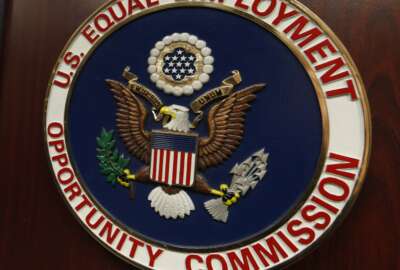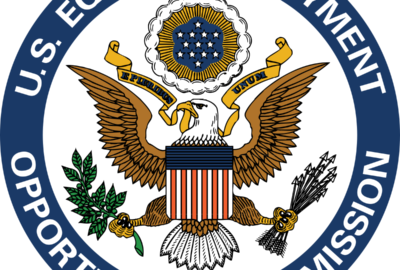
Lack of feds’ trust in ADR process leading to low participation
Federal agencies "overwhelmingly" see a lack of trust from employees in agency leadership to come to the table in good faith when resolving workplace disputes, ...
Some agencies are struggling with how federal employees perceive their Alternative Dispute Resolution (ADR) programs.
Although ADRs should be an effective option for mitigating workplace disputes before they rise to the level of litigation, the Equal Employment Opportunity Commission said negative perceptions from employees about ADR programs can worsen participation rates.
“When asked to identify the primary obstacles limiting participation in ADR, agencies overwhelmingly cited a lack of trust in agency leadership or management to come to the table in good faith,” EEOC said in a report published Tuesday.
EEOC said the availability of ADRs for employees is important because it can help resolve workplace disputes more efficiently, at lower costs and without the need to go to court.
“Alternative dispute resolution remains a vital option in EEO process,” Dexter Brooks, associate director of EEOC’s Office of Federal Operations, said in a statement. “Mutually acceptable resolution creates an opportunity for the parties to find a way forward.”
But EEOC’s report found that agencies offered ADR as an option for complainants in just about 70% of cases. Within that 70%, about one-third of employees actually chose to participate in their agency’s ADR program, according to EEOC data from fiscal 2019.
Some agencies told EEOC in a 2021 survey that their decision of whether or not to offer ADR was not set in a specific policy but was instead a case-by-case decision.
Employees might opt out of the ADR process if agencies take actions that “delegitimize” the fairness of the program, EEOC said.
For example, about 19% of agencies let a manager accused in a complaint be the authority for the settlement of it.
The lack of trust from employees in the ADR program also leads to limited participation and much higher likeliness for employees to leave the agency.
But agencies said in the EEOC-conducted survey that they sometimes have limited resources to properly fix issues in their ADR programs. For instance, one agency said that because of its small staff, its acting secretary has to serve as the settlement authority for all of its complaints.
Agencies’ settlement rate for formal complaints was also more than double the settlement rate for informal counseling.
“This suggests that agencies were more willing to negotiate when an employee files a formal complaint,” EEOC said.
Notably, EEOC found that large agencies typically use the ADR process more often than midsized or small agencies.
“This difference may reflect the fact that larger agencies tend to have more resources available,” EEOC said.
Agencies also lack training for managers and employees about ADRs, which can lead to limited understanding of the program.
Specifically, EEOC found that 30% of agencies surveyed provided annual ADR training to agency leaders, and just 20% of agencies provided ADR training for all employees.
Another issue for agencies was simply the availability of information about their ADR programs. EEOC found that just 15 out of 24 agencies — roughly two-thirds of agencies surveyed — had complete information published on their websites about the ADR program.
For the roughly 40% of agencies who had incomplete ADR policies in 2019, the most common missing information was the timeline involved in the ADR process.
Many agencies had not updated the information on their ADR programs in years.
“The majority of agencies indicated that there was no set schedule for updating their ADR policies, meaning that these agencies’ policies were only updated in response to outside pressures or had not been updated for a very long time,” EEOC said. “For example, one agency’s policy published on its external website is dated in 1995.”
About a third of agencies are not routinely conducting self-assessments of their ADR programs’ effectiveness. And about one-fourth of agencies are not evaluating their programs at all.
In one positive finding, the vast majority of agencies surveyed said they make sure the settlement authority is available during active ADR sessions, EEOC said.
To try to correct ongoing program challenges, as well as employees’ perceptions of ADR programs, agencies should complete self-assessments and update their policies at least every three years, EEOC said. Agencies should also hold regular meetings of senior leaders to discuss issues in the ADR program, as well as review ADR data on a quarterly basis. And agencies should develop and require an annual ADR training course for employees and managers.
To try to help agencies, EEOC created a sample survey to give to employees who complete the ADR process to get feedback and suggestions for improvement.
Copyright © 2024 Federal News Network. All rights reserved. This website is not intended for users located within the European Economic Area.
Drew Friedman is a workforce, pay and benefits reporter for Federal News Network.
Follow @dfriedmanWFED
Related Stories





